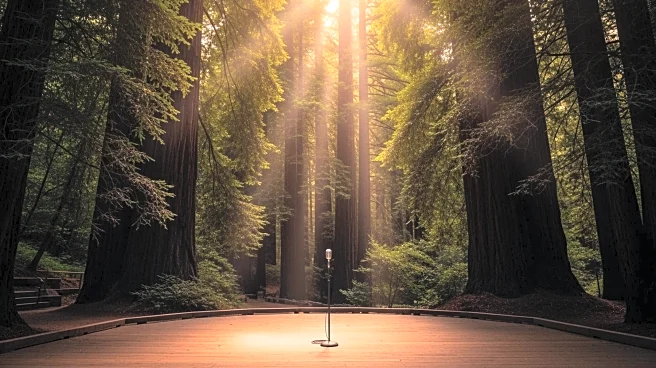Rapid Read • 7 min read
A total lunar eclipse, commonly referred to as a 'Blood Moon' due to its reddish hue, is set to occur on the night of September 7 and 8, 2025. This event marks the second and final total lunar eclipse of the year, with a duration of over five hours and 82 minutes of full totality. The eclipse will be visible in its entirety from regions including India, China, Russia, western Australia, eastern Africa, and much of central Asia. Other areas such as the western Pacific, Indian Ocean, Antarctica, and parts of eastern Africa will also have prime viewing conditions. Unfortunately, North America will miss the full spectacle as the moon will have set by the time the eclipse occurs, though the western tip of Alaska may witness a partial phase. In the UK and western Europe, observers might catch a glimpse of the totality as the moon rises.
AD
The 'Blood Moon' is a significant astronomical event that captivates both amateur and professional astronomers worldwide. It provides a unique opportunity for educational outreach and public engagement in astronomy, as lunar eclipses can be safely viewed with the naked eye without the need for special equipment. This event also highlights the global nature of astronomical phenomena, as different regions experience varying visibility. The eclipse can inspire interest in science and space exploration, potentially influencing educational and career pursuits in these fields. Additionally, the event is a reminder of the interconnectedness of the Earth's natural systems and celestial bodies.
For those unable to view the eclipse in person, the Virtual Telescope Project in Italy will offer a live broadcast of the event, starting shortly after 5:45 pm UTC as the moon rises in Europe. This online streaming option ensures that people worldwide can experience the eclipse, regardless of their geographic location or weather conditions. As the eclipse approaches, astronomers and educators may organize viewing events and discussions to enhance public understanding and appreciation of this celestial phenomenon.
AD
More Stories You Might Enjoy












